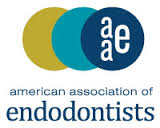Are you under the impression that worsening oral health is as inevitable a part of aging as wrinkles? If so, you may be relieved to learn that’s hardly the case. Studies indicate that poor oral health, much less loss of teeth, does not have to be a side effect of growing older. While there are added challenges to maintaining healthy gums and teeth as you age, it’s not impossible to keep your smile looking and feeling its best. Making regular preventive care, like professional cleanings, a part of your healthcare routine is one way to help maintain the health of your smile. But there are some tips for how to care for your teeth, at home, that can help as well!
Keep Your Smile Hydrated
Along with the laundry list of side effects that may be listed on your prescription medications, such as those for diabetes and hypertension, you may notice you have a chronic case of dry mouth as well. While this might seem relatively harmless, this actually means you’re making less saliva than is needed to help keep your teeth clean.
Saliva has naturally plaque-fighting components, which makes it essential to preventing gum disease and cavities. If you have dry mouth, make sure you’re drinking lots of water, but also consider a dry mouth rinse, which can help.
Diabetics are particularly prone to problems with plaque and periodontal disease (gum disease). For this reason, even if there are no visible symptoms of gum problems (such as bleeding or redness), diabetics should attend professional dental cleanings at least every six months.
Watch Your Calcium Intake
Maintaining a well-balanced diet can help keep your teeth and gums healthy as well. Fresh fruits and vegetables can help clean teeth, and provide you with much-needed water. Limiting sugars can help prevent cavities and other decay. But calcium is also essential, particularly for women going through menopause. That’s because the decreases in estrogen women experience during menopause can negatively affect their ability to regulate their bone calcium. This is why doctors often recommend women increase their calcium intake. It can be good for their teeth as well as their bodies!










